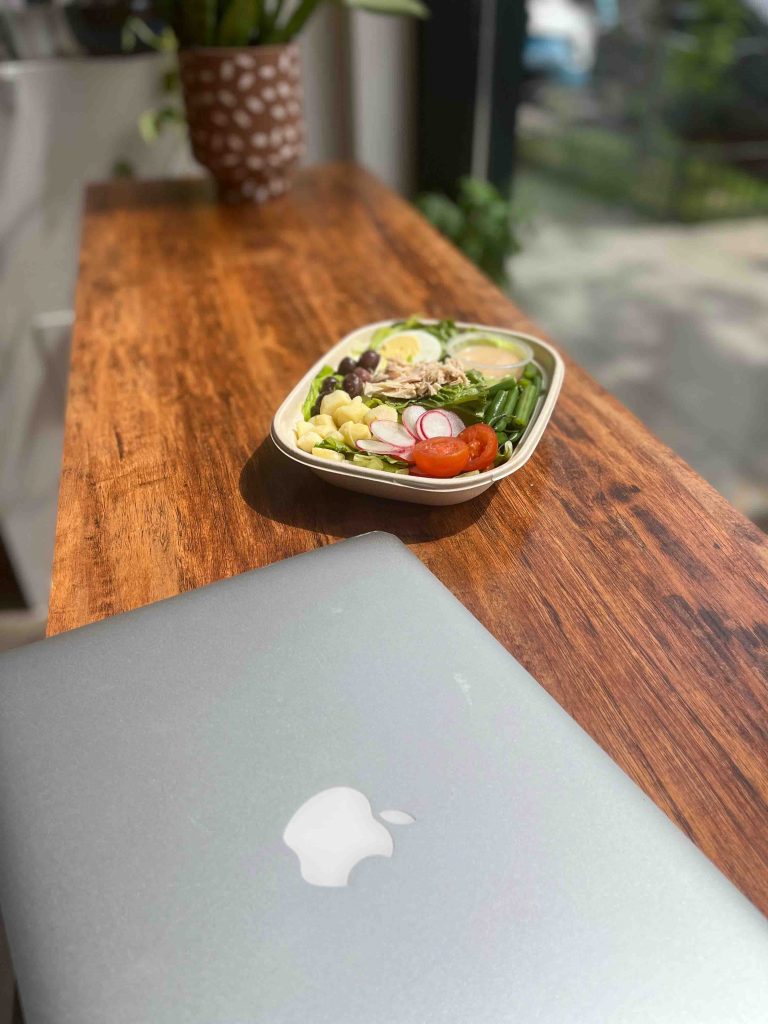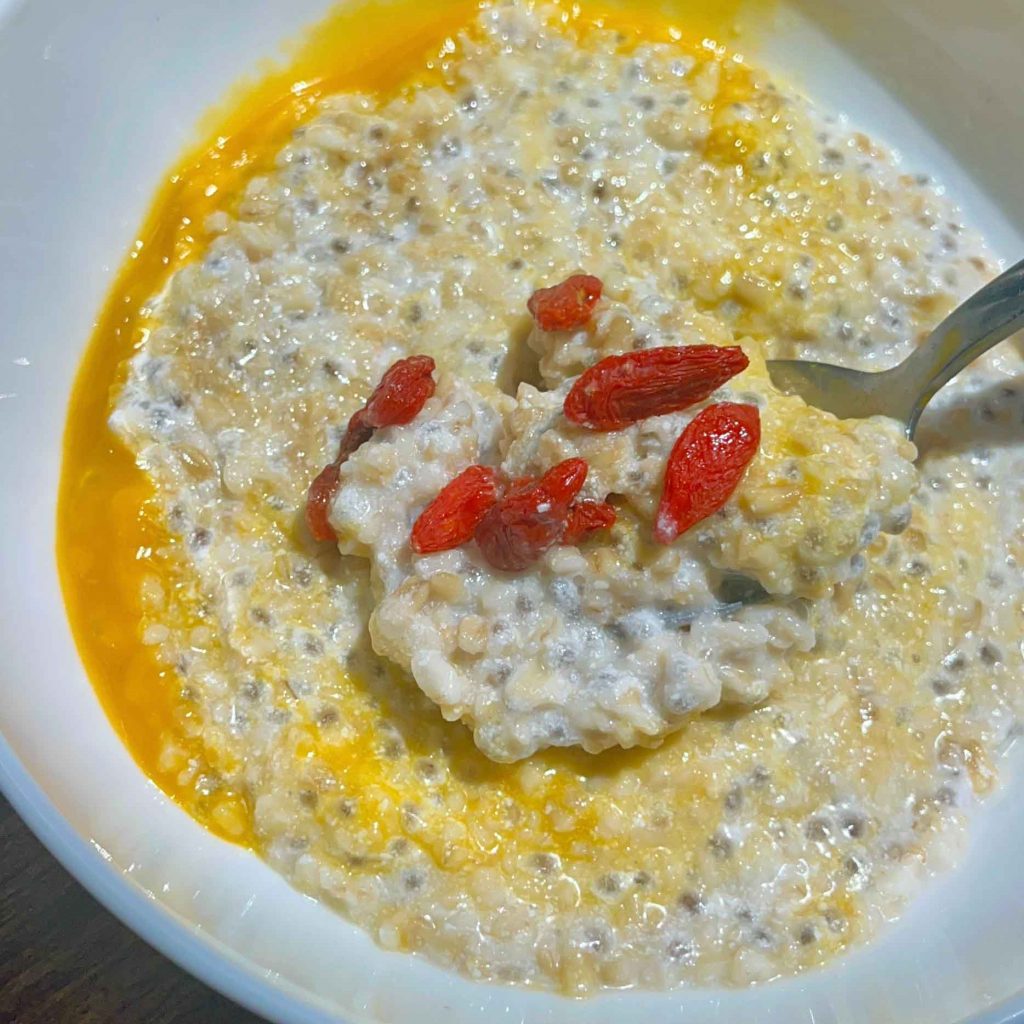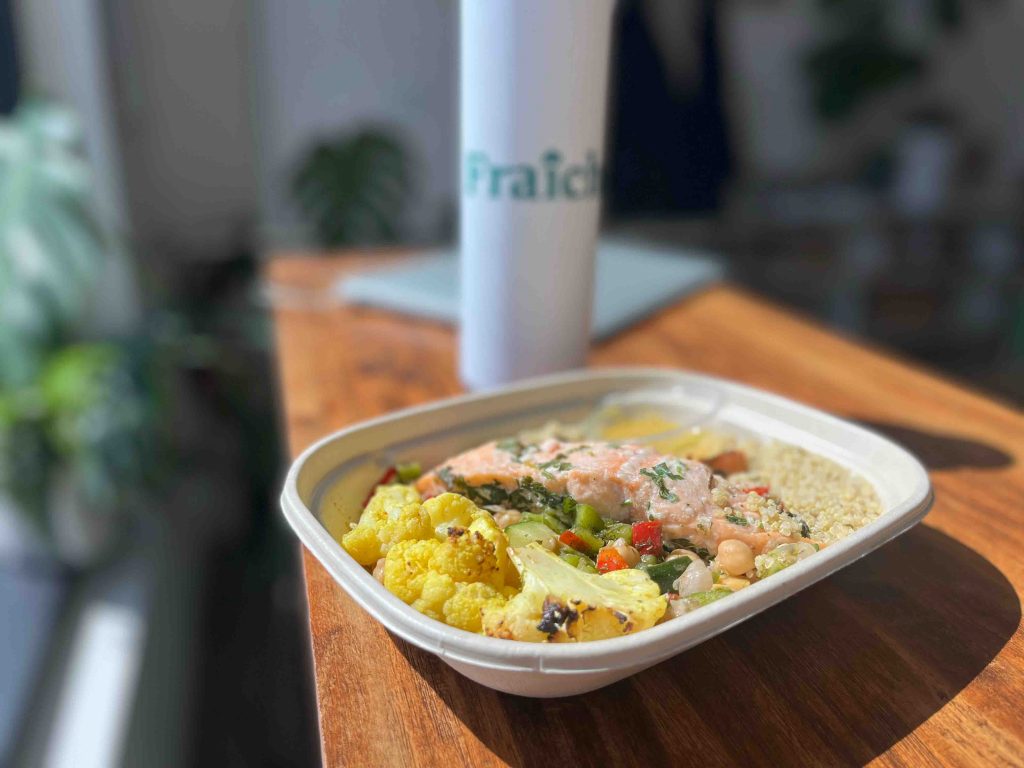Nurturing the Gut-Brain Connection: A Guide to Boost Mental Health
A week ago, we had an enlightening discussion about the intricate relationship between our gut and brain health. We explored the concept of the gut microbiome, its impact on our overall well-being, and how certain foods can either support or hinder this delicate balance.
In honor of Mental Health May, we’re recapping what we learned in the fascinating topic of the gut-brain connection.
Understanding the Gut-Brain Connection:

Our gut microbiome, a collection of trillions of microorganisms residing in our gastrointestinal tract, plays a crucial role in maintaining a healthy digestive system.
However, recent research has revealed that its influence extends far beyond digestion. In fact, the gut microbiome has a profound impact on our mental health, influencing mood, cognition, and even sleep patterns.
The gut-brain connection operates through various pathways, including the production of serotonin, a neurotransmitter that regulates mood and gastrointestinal activity.
Surprisingly, about 95% of our body’s serotonin is produced by the gut microbiome, emphasizing the significance of a thriving gut ecosystem for our mental well-being.

Additionally, the gut is governed by the enteric nervous system, often referred to as the “second brain,” which communicates with the brain through neural, hormonal, and bacterial signals.
Foods that Support Gut Health and Mental Well-being:
Maintaining a well-functioning gut is essential for optimal mental health. Here are some foods that can nourish your gut microbiome and positively influence your mood:
1. Fiber-rich Plant Foods:
A diverse, plant-based diet is a key component of a thriving gut microbiome.

Plant-based foods, such as fruits, vegetables, whole grains, legumes, and nuts, provide a wide range of fibers that support digestion and help maintain the balance of beneficial gut organisms. The fermentation of dietary fiber by the microbiome produces short-chain fatty acids (SCFAs), which have been linked to improved gut health, reduced inflammation, and enhanced brain function.

3. Antioxidant-rich Foods:
Certain vegetables, such as cauliflower, cabbage, and Brussels sprouts, are rich in antioxidants that protect the brain from oxidative stress and inflammation. Additionally, leafy greens like spinach and kale, which are high in folate, have been linked to improved mental health and a reduced risk of depression.

5. Balanced Meals:
Adopting a balanced eating pattern, such as the MIND diet, which emphasizes fruits, vegetables, whole grains, fish, beans, and olive oil, can support cognitive health and provide antioxidants and anti-inflammatory compounds that benefit both the gut and the brain.
2. Omega-3 Fatty Acids:
Omega-3 fatty acids, found in fatty fish (such as salmon and mackerel), walnuts, chia seeds, and flaxseeds, have been associated with a lower risk of depression and improved cognitive function. Including these foods in your diet can provide the essential fats needed for optimal brain health.

4. Spices for Flavor and Brain Boosting:
Spices like turmeric, when consumed with a pinch of black pepper, can positively affect the gut microbiome by promoting the growth of beneficial bacteria and reducing inflammation. Turmeric has also shown promise in improving depressive symptoms and enhancing memory.

6. Mindful Eating and Consistency:
Practicing intuitive and mindful eating, where you listen to your body’s cues and eat when you’re hungry, can help maintain a healthy gut-brain connection. Additionally, eating regular meals at consistent intervals can provide stability for the gut microbiome and contribute to overall mental well-being.
To conclude on Gut-Brain Connection
Understanding the profound connection between our gut and brain health opens up new avenues for enhancing our mental well-being through the foods we consume. Remember that balance is key. One thing that we learnt is that we cant restrict ourselves from foods that we love, but trying to get those fruits, veggies, whole grains, and good protein in our diet, is already the start to a sustainable diet and mood!



